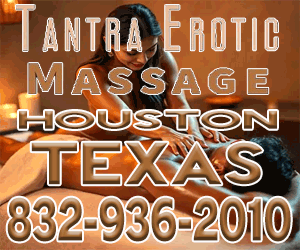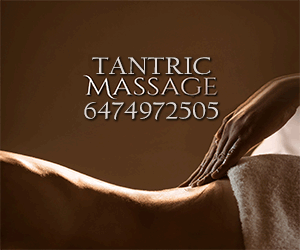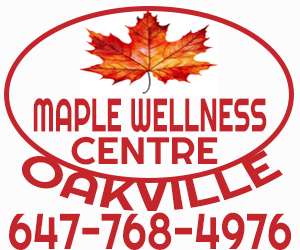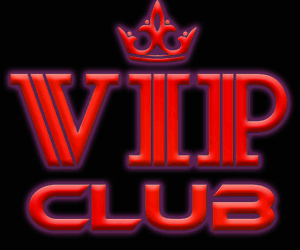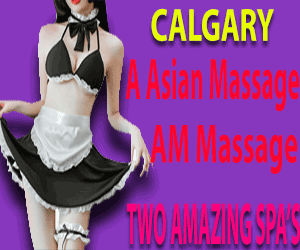A
Amy McCluskey
Guest
Every third Tuesday of the month, John Ludwig heads to the James City County Library on Croaker Road with candles, drums and an open mind.
A practitioner of shamanism, the Williamsburg-area resident leads a free shamanic journeying circle that gives those in the community a friendly, supportive environment to share, reflect and learn.
A former Marine staff sergeant and intelligence analyst turned massage therapist, Ludwig chuckles when asked if his younger self could’ve foretold his change in vocation. Though a departure from military service, Ludwig said he’s always had a penchant for healing and helping others, so maybe his change in trajectory wasn’t all that unexpected.
His journey even recently took him to the steppes of Mongolia, where he worked with shamans there.
Shamanism is one of the world’s oldest religions and healing traditions with evidence of shamanic practices dating as far back as 30,000 years ago. Though shamanic practices vary by region, it’s generally described as a spiritual practice that involves a practitioner, or shaman, interacting with the spirit world through altered states of consciousness to heal, guide, protect communities and influence nature.
Its holistic approach and deep historical roots appeal to non-indigenous people for a variety of reasons.

John Ludwig demonstrates a drum he uses during the shamanic journeying circle he holds each month at the James City County Library. Maggie Root/freelance
For Ludwig, a series of personal encounters years ago that he couldn’t explain led him to reading a book on shamanism.
“I had some interesting experiences and felt like I needed to do some more learning, and that’s how I got introduced to it,” he said.
Wanting to know more, Ludwig enrolled in the Foundation for Shamanic Studies in 2016 and became certified as a shamanic practitioner. The program focuses on core shamanism — meaning it teaches aspects of shamanism that are considered “universal” — not specific to one particular culture.
Ludwig, who already offered his massage therapy clients other healing modalities such as Reiki, a form of energy healing, and myofascial release, added shamanic healing to his services in 2016. As an extension to his shamanic healing practice, he founded the Ginkgo Fire Circle for shamanic journeying in 2018.
“For me, doing the healing work fits nicely with my healing practice as a massage therapist,” Ludwig said. “It flows in with what I do. I just want to help people in whatever way that they need.”
To expand upon his knowledge and visit a part of the world rich with shamanic culture, Ludwig traveled to Mongolia for two weeks this fall. There, he and others in a tour group participated in Mongolian shamanic traditions and practices, which included traveling to honor three of the 10 sacred mountains in the country, including Otgontenger, the highest peak in the Khangai Mountains, and two peaks in the Altan Els National Park.

John Ludwig, a Williamsburg-area massage therapist, in Mongolia where he worked with shamans during a recent trip. Courtesy of John Ludwig
“The main reasons I wanted to go to Mongolia were first, because it sounded cool and second, I felt that seeing and interacting with the shamans there — and seeing what is different or similar to what I do in my healing practice — would deepen my understanding,” Ludwig said.
Though staying in snowy yurts and off-roading through the countryside surrounded by yaks and camels was exciting in itself, Ludwig said witnessing Mongolian shamans channel their ancestors and speak directly to him was one of the highlights of the trip.
“They were telling me some things I should be working on and doing for the future, and it was very interesting seeing how they follow their traditions,” Ludwig said. “Some of what they do was very similar to what I do, and some were very different.”
Ludwig said anyone can benefit from shamanic healing and journeying, regardless of their beliefs.
“I have worked with Catholic priests and nuns, psychiatrists, social workers, doctors, nurses, people from multiple faiths and cultural backgrounds, agnostics, atheists, pagans, witches, IT professionals and engineers,” he said. “The value of this work is in direct, personal experiences, no matter what your training, religion or cultural heritage is. Everyone is able to gain value, for themselves.”
Heather Bartholomew, a Williamsburg resident and nurse, attended Ludwig’s Gingko Fire Circle for the first time last month. She discovered the shamanic journeying circle listed on Meetup.com, a social media platform that helps people find and join groups they may be interested in. A recent empty nester, Bartholomew found that she had more time to pursue her own desires and has been on a journey of self-discovery.
“I had never attended a shamanic journey specifically, so I was excited to see what it was all about,” Bartholomew said.
Ludwig starts the circle by giving an introduction on shamanic journeying describing the cosmology — or belief system — of the practice, which entails using rhythmic drumming or rattling to ease the mind into an altered state where participants can access compassionate, helpful spirits in one of the worlds in the shamanic universe.
“These spirits could be in different forms such as elemental, animal or fantastical,” Ludwig explained. “Each participant has an individual experience.”
Ludwig instructed circle participants to envision a door, hole or portal, Bartholomew said, and upon closing her eyes and listening to the steady drumming, she encountered what she described as a “being in human shape comprised of only light.”
Following the experience, Bartholomew said she was left with an “elated sense of presence.”
“With every part of me, I wanted to go back,” she said.

On a recent trip, John Ludwig and others worked with shamans, pictured here, to honor three different mountains. Courtesy of John Ludwig
Ludwig does one to three journeys per circle, often on a guided subject, but sometimes people come with a question or something they want to work on.
Ludwig said he realizes that for some, the idea of shamanic healing and journeying may be difficult to believe. When asked how he deals with skeptics, he often refers back to his own personal experiences.
“My approach is that, when spirits give me information that I couldn’t possibly know, it’s real, and that when people ask for healing, and things get better, it’s real,” he said. “All of my personal experiences have shown me that, despite my own personal doubts, it’s real. All shamanic work is about personal experience, which shows the individuals the value of the work.”
For more information about the Gingko Fire Circle or about Ludwig’s work, visit his website at ludwigstudio.net.
Amy McCluskey, amccluskey79@gmail.com
Originally Published: December 27, 2024 at 1:00 PM EST
A practitioner of shamanism, the Williamsburg-area resident leads a free shamanic journeying circle that gives those in the community a friendly, supportive environment to share, reflect and learn.
A former Marine staff sergeant and intelligence analyst turned massage therapist, Ludwig chuckles when asked if his younger self could’ve foretold his change in vocation. Though a departure from military service, Ludwig said he’s always had a penchant for healing and helping others, so maybe his change in trajectory wasn’t all that unexpected.
His journey even recently took him to the steppes of Mongolia, where he worked with shamans there.
What is shamanism?
Shamanism is one of the world’s oldest religions and healing traditions with evidence of shamanic practices dating as far back as 30,000 years ago. Though shamanic practices vary by region, it’s generally described as a spiritual practice that involves a practitioner, or shaman, interacting with the spirit world through altered states of consciousness to heal, guide, protect communities and influence nature.
Its holistic approach and deep historical roots appeal to non-indigenous people for a variety of reasons.

John Ludwig demonstrates a drum he uses during the shamanic journeying circle he holds each month at the James City County Library. Maggie Root/freelance
For Ludwig, a series of personal encounters years ago that he couldn’t explain led him to reading a book on shamanism.
“I had some interesting experiences and felt like I needed to do some more learning, and that’s how I got introduced to it,” he said.
Wanting to know more, Ludwig enrolled in the Foundation for Shamanic Studies in 2016 and became certified as a shamanic practitioner. The program focuses on core shamanism — meaning it teaches aspects of shamanism that are considered “universal” — not specific to one particular culture.
Ludwig, who already offered his massage therapy clients other healing modalities such as Reiki, a form of energy healing, and myofascial release, added shamanic healing to his services in 2016. As an extension to his shamanic healing practice, he founded the Ginkgo Fire Circle for shamanic journeying in 2018.
“For me, doing the healing work fits nicely with my healing practice as a massage therapist,” Ludwig said. “It flows in with what I do. I just want to help people in whatever way that they need.”
To expand upon his knowledge and visit a part of the world rich with shamanic culture, Ludwig traveled to Mongolia for two weeks this fall. There, he and others in a tour group participated in Mongolian shamanic traditions and practices, which included traveling to honor three of the 10 sacred mountains in the country, including Otgontenger, the highest peak in the Khangai Mountains, and two peaks in the Altan Els National Park.

John Ludwig, a Williamsburg-area massage therapist, in Mongolia where he worked with shamans during a recent trip. Courtesy of John Ludwig
“The main reasons I wanted to go to Mongolia were first, because it sounded cool and second, I felt that seeing and interacting with the shamans there — and seeing what is different or similar to what I do in my healing practice — would deepen my understanding,” Ludwig said.
Though staying in snowy yurts and off-roading through the countryside surrounded by yaks and camels was exciting in itself, Ludwig said witnessing Mongolian shamans channel their ancestors and speak directly to him was one of the highlights of the trip.
“They were telling me some things I should be working on and doing for the future, and it was very interesting seeing how they follow their traditions,” Ludwig said. “Some of what they do was very similar to what I do, and some were very different.”
Benefits of a shamanic journey
Ludwig said anyone can benefit from shamanic healing and journeying, regardless of their beliefs.
“I have worked with Catholic priests and nuns, psychiatrists, social workers, doctors, nurses, people from multiple faiths and cultural backgrounds, agnostics, atheists, pagans, witches, IT professionals and engineers,” he said. “The value of this work is in direct, personal experiences, no matter what your training, religion or cultural heritage is. Everyone is able to gain value, for themselves.”
Heather Bartholomew, a Williamsburg resident and nurse, attended Ludwig’s Gingko Fire Circle for the first time last month. She discovered the shamanic journeying circle listed on Meetup.com, a social media platform that helps people find and join groups they may be interested in. A recent empty nester, Bartholomew found that she had more time to pursue her own desires and has been on a journey of self-discovery.
“I had never attended a shamanic journey specifically, so I was excited to see what it was all about,” Bartholomew said.
Ludwig starts the circle by giving an introduction on shamanic journeying describing the cosmology — or belief system — of the practice, which entails using rhythmic drumming or rattling to ease the mind into an altered state where participants can access compassionate, helpful spirits in one of the worlds in the shamanic universe.
“These spirits could be in different forms such as elemental, animal or fantastical,” Ludwig explained. “Each participant has an individual experience.”
Ludwig instructed circle participants to envision a door, hole or portal, Bartholomew said, and upon closing her eyes and listening to the steady drumming, she encountered what she described as a “being in human shape comprised of only light.”
Following the experience, Bartholomew said she was left with an “elated sense of presence.”
“With every part of me, I wanted to go back,” she said.

On a recent trip, John Ludwig and others worked with shamans, pictured here, to honor three different mountains. Courtesy of John Ludwig
Ludwig does one to three journeys per circle, often on a guided subject, but sometimes people come with a question or something they want to work on.
Ludwig said he realizes that for some, the idea of shamanic healing and journeying may be difficult to believe. When asked how he deals with skeptics, he often refers back to his own personal experiences.
“My approach is that, when spirits give me information that I couldn’t possibly know, it’s real, and that when people ask for healing, and things get better, it’s real,” he said. “All of my personal experiences have shown me that, despite my own personal doubts, it’s real. All shamanic work is about personal experience, which shows the individuals the value of the work.”
For more information about the Gingko Fire Circle or about Ludwig’s work, visit his website at ludwigstudio.net.
Amy McCluskey, amccluskey79@gmail.com
Originally Published: December 27, 2024 at 1:00 PM EST











































